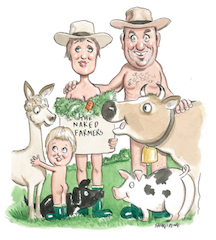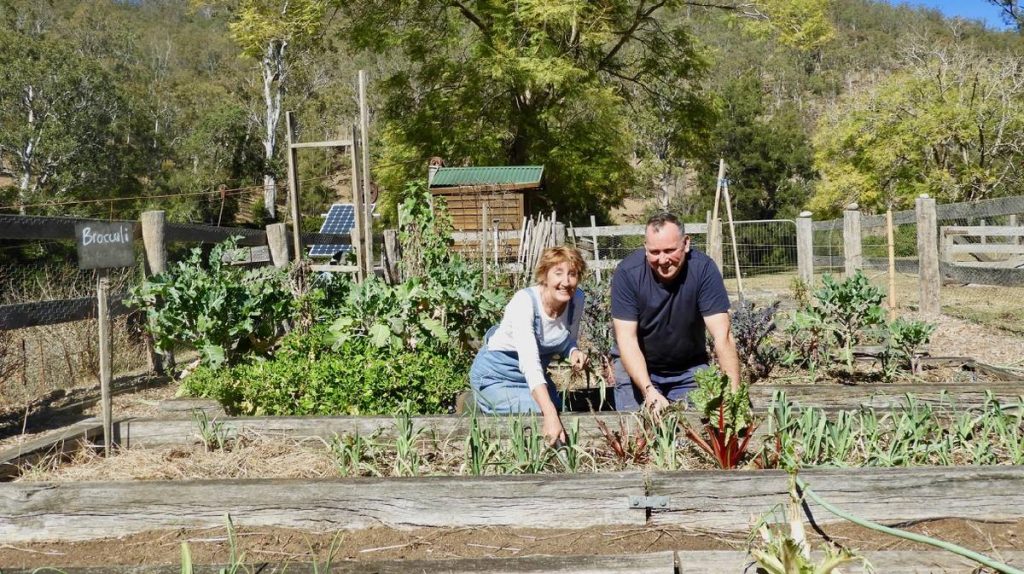One brave rural woman has decided to try and build a bridge over the rapidly expanding chasm between country and city folk, creating a podcast called The Naked Farmers.
Sophie Love bought a farm in the Hastings Hinterland on NSW’s mid-north coast in 2007 as a “single-40-something” year-old.
In short shrift she met and married the local solar expert and home-birthed her son.
As a vegan of more than 20 years, long “before it became trendy”, she learned to raise meat for her boys and eat a more balanced diet.
In the process she has become a passionate advocate and tried to straddle the divide between vegans and farmers in print, online and on TV.
Ms Love has long called for dedicated rural reporting across mainstream media in order for city people to learn and hear about the struggles and trials of their rural counterparts.
“And to learn how food and fibre are grown and raised on this great, arid, land,” she said.
“We all eat and in the face of this rapidly-changing climate we are going to have to start taking an interest in where our food comes from.
“But farmers feel marginalised and under attack by activist vegans, drought and climate crisis, dwindling water supplies and allocations, price slashing by the duopoly and a lack of understanding and action by politicians, and all too many are walking off their family land.”
Ms Love said she would emphasise with “both sides of the divide” as a vegan, but said it was important more needed to be done to bridge the gap between city people and their country counterparts.
“I have learned so much from farmers on my interactions on Twitter that I decided my innate nosiness and desire to drill deep into the realities of farming in Australia would make a great, long-form, podcast,” she said.
“The aim is to talk to all farmers, find out how, where and why they do what they do.”
While Ms Love said the success of the podcast was dependent on its listeners, she thought it would be worth giving it a go.
She said the podcast would be free of bias.
“Politically, chemically, organically or whatever, but asking probing questions to try and inform the often simplistic discourse in the media,” she said.
“It will be nuts and bolts about the business of farming, as well as the emotive issues – live export, Murray-Darling, dollar milk, drought and mental health.
“It’s an opportunity for every farmer to tell their side of the story.”
If you would like to feature in the The Naked Farmers podcast series, or wish to nominate someone, click here.

